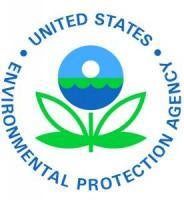WASHINGTON – To kick off Asthma Awareness Month, the U.S. Environmental Protection Agency (EPA) is commemorating World Asthma Day by bringing awareness to a growing nationwide problem. Asthma has consistently increased over the past decade with more than 4 million additional cases reported, including nearly 1 million additional cases reported in children. One out of every 10 school aged children is affected and approximately 13 million people have reported having an asthma attack in the past year. EPA is taking action to ensure cleaner air and a healthier environment for children and families dealing with asthma.
"All Americans should be able to breathe easy whether they’re at home, at work or on the playground," EPA Administrator Lisa P. Jackson said. "Yet too many of our children and family members suffer from asthma, resulting in doctor and hospital visits, lost learning time, more sick days and higher health care costs. It's our mission at EPA to protect the health of our communities by putting Clean Air Act safeguards in place to reduce levels of harmful pollutants in the air we all breathe. "
EPA provides guidance and resources to reduce indoor air triggers such as dust mites, mold, cockroaches, pet dander, and secondhand smoke in homes and schools. In addition to voluntary actions, EPA has taken a number of regulatory actions to protect people's health by updating air quality standards and reducing air pollution from power plants, industry and vehicles. For example, EPA recently proposed the first national standard for mercury pollution from power plants, which is estimated to prevent 120,000 cases of childhood asthma symptoms, helping people breathe easier by improving outdoor air quality and reducing fine particle pollution.
As part of Asthma Awareness Month, EPA recommends these top five steps people can take to help prevent asthma attacks:
- Take it outside. One of the most common asthma triggers in the home is second hand smoke. Until they can quit, people should smoke outside, not in their home or car.
- Play it safe. Ozone and particle pollution can cause asthma attacks. People should check the Air Quality Index (AQI) to view reports of unhealthy levels.
- Keep it clean. Dust mites are also triggers for asthma. For dust mite control, cover mattresses and pillows with allergen proof covers and wash sheets and blankets once a week in hot water.
- Stake your claim. Household pets can also trigger asthma. People should keep pets out of the bedroom and off furniture.
- Break the mold. Mold is another asthma trigger. The key to controlling mold is controlling moisture. People should wash and dry hard surfaces to prevent and remove mold, and should replace moldy ceiling tiles and carpet.
Asthma is a nationwide problem. On June 9-10 EPA will host the National Asthma Forum in Washington, D.C. Hundreds of providers, health departments, community asthma coalitions, researchers, policy makers, and others will gather to discuss the most effective community based strategies for improving asthma outcomes, building successful and sustainable asthma care programs, and extending the reach and impact of high quality asthma care to everyone in need.
More information on asthma: http://www.epa.gov/asthma/index.html
More information on the forum: http://www.epa.gov/asthma/forum.html



 i
i

